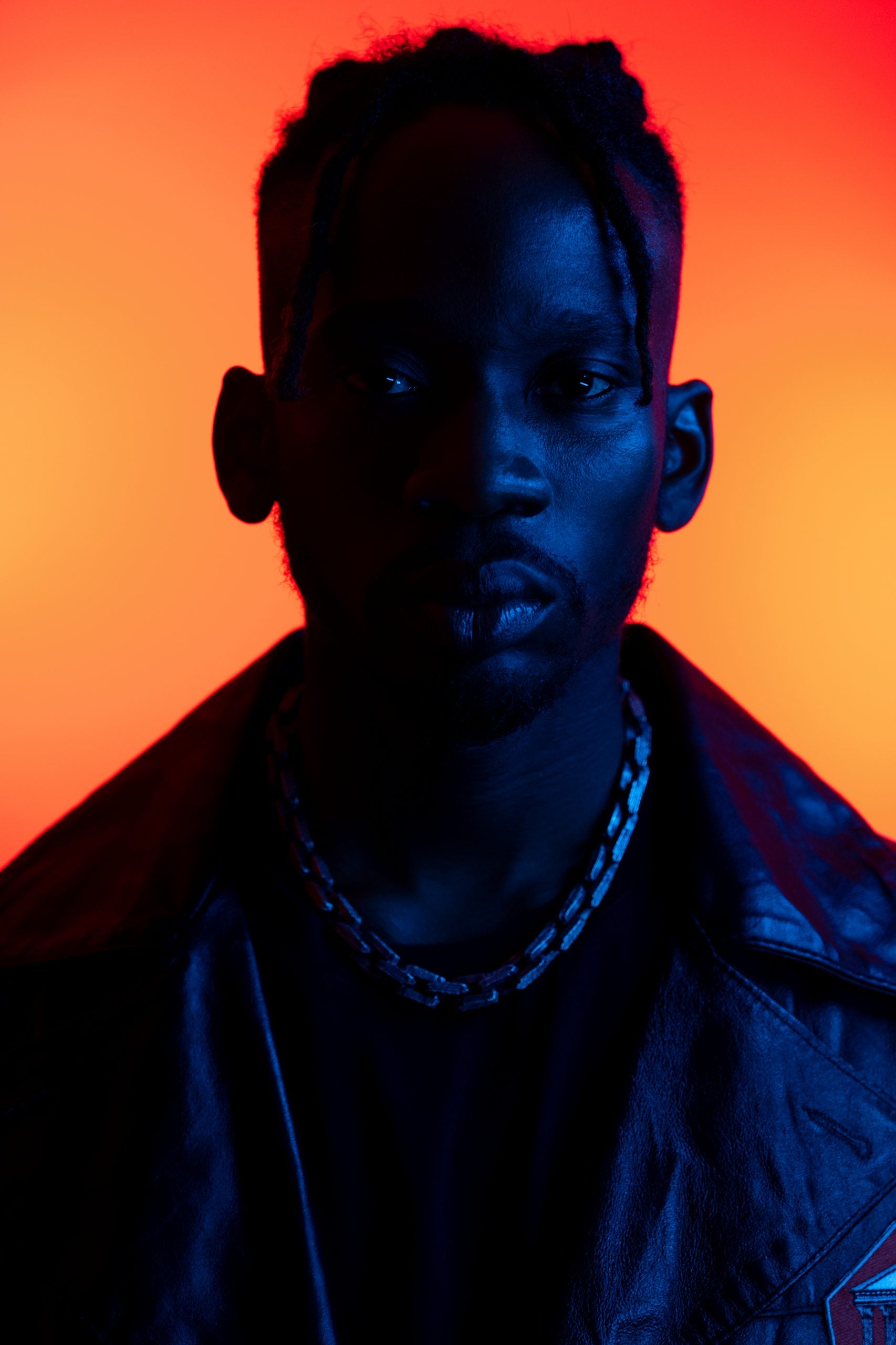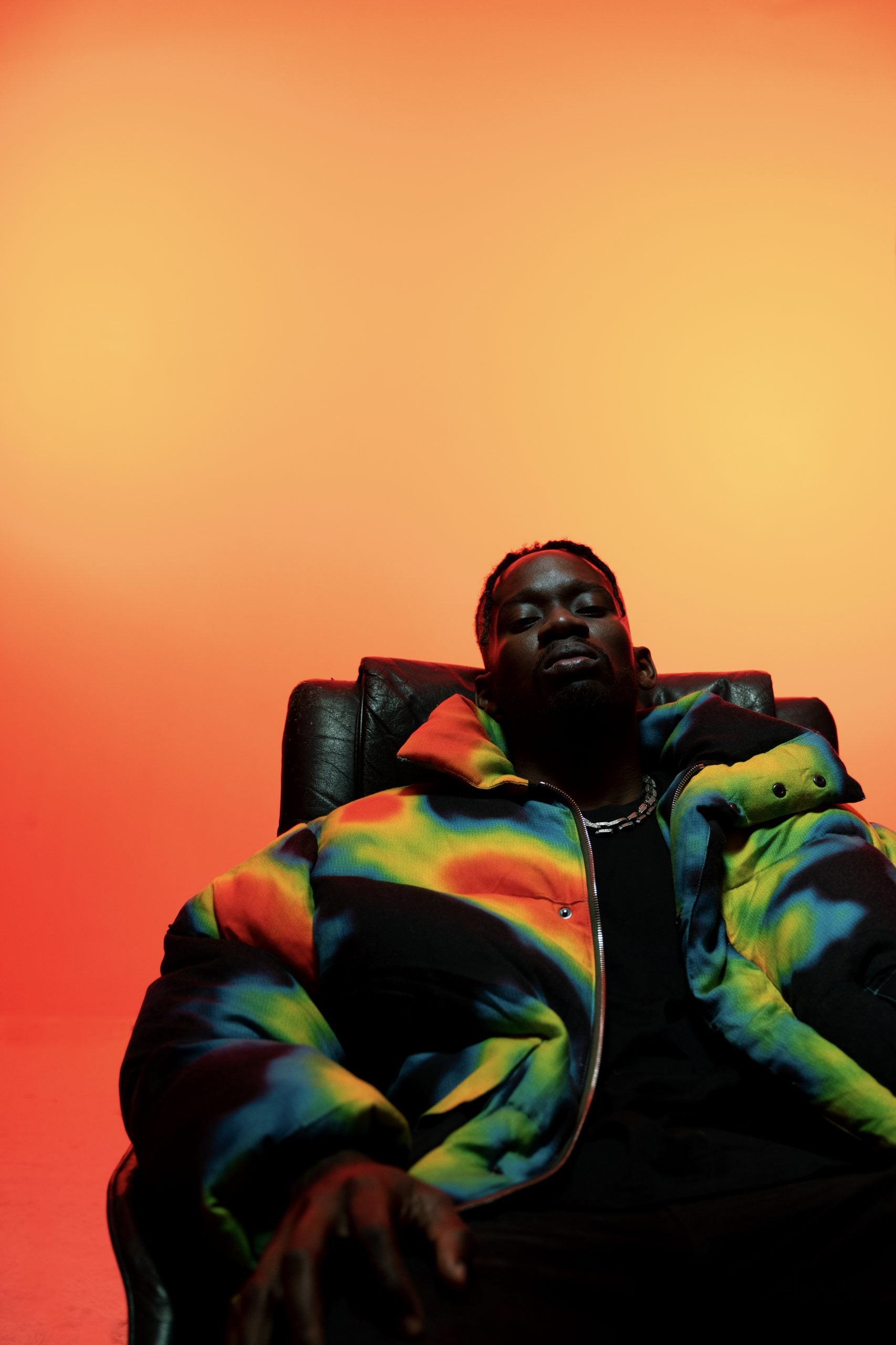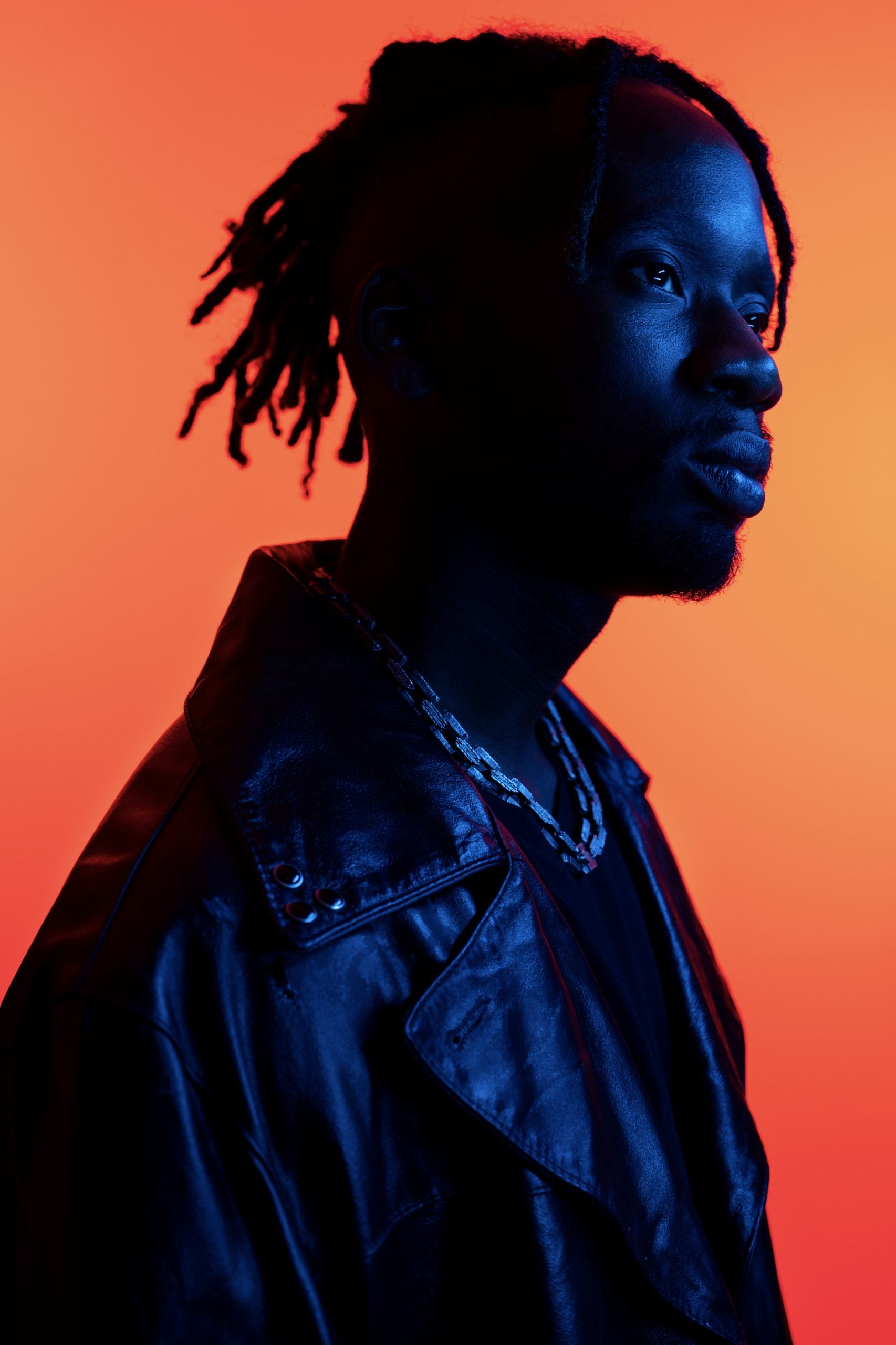
For Nigerian Afropop artist Mr. Eazi (Oluwatosin Ajibade), the next wave of African music has arrived. He knows he has a role to play front and center in his own artistry, as well as behind the scenes — developing the sounds of new artists across the continent.
The presently Accra-based Nigerian creator of Banku music — which he humorously defines as the sort of music one is surprised they’re able to dance to after eating the Ghanaian dish Banku — has a new EP, Something Else, out today which fans will find markedly different from his prior projects. If what distinguishes Mr. Eazi’s contribution to the Afropop canon is an emotional but firm, smooth but lingering melodic impression, in the new five-track offering, the base is louder, the tone, more forceful, and Mr. Eazi isn’t occupying any specific space.
“That’s why it’s called Something Else,” Mr. Eazi says, laughing inside a stagnant vehicle outside his residence. He’s dressed in all black, including a black mask which he removes at the start of our Zoom call — after I joke that it might make him easier to understand. “This is not what I would do usually…Something Else was a fun project…I self-recorded for 90% of the project,” he says, later adding, “I’m just experimenting…it’s like an escape and it buys me that time because I was also trying to find out where the next destination will be.”

The “destination” Mr. Eazi refers to, is a double entendre. He is of course conscious that fans are awaiting a landing place that will result in a new album following 2018’s Life is Eazi, Vol. 2 – Lagos To London, his sophomore work that succeeded his 2017 debut, Life is Eazi, Vol. 1. But as the names of these projects suggest, for the Afropop star, making an album is not only about recording the music, it’s also about where he creates the music; movement and migration is an intricate part of his artistic experience and how he sees himself.
“I’m just someone who is obsessed with journeys. I love journeys, I love processes…For me, the road to the journey is the sweetest part because once you’re there, it’s like, ‘Okay what’s next?’ I just feel like beauty is in the journey,” he says.
Not even the ongoing pandemic kept Mr. Eazi from traveling last year when he was based in London, UK. Along with two friends of his, the trio took a road trip across Europe beginning in August after months spent in stricter lockdowns.
“We were living out of the car for three months and just driving. We hit like thirteen countries…France, Germany, Austria, Italy…we weren’t spending more than like three, four days in one location…I don’t know what would have happened if I didn’t take that trip because…at the point before I took that trip, I was losing my mind,” he says, shaking his head. “I don’t know how many times I’ve taken the Covid test [due to my travels], it’s just ridiculous at this point,” he adds.
Prior to getting on the road for the sake of his sanity, Mr. Eazi had enjoyed resting during the first few months of the initial global lockdown that took place due to the pandemic.
“I needed to review things. I was becoming so bored of doing music that I was beginning to think, you know, maybe I shouldn’t do it anymore,” he says, his voice replicating a feeling of the exhaustion he ostensibly felt then. He adds, “I was bored to the point where I was rushing performances…so the first five months was a lesson to me because I was able to just pause.”

Arguably, the combination of rest followed by the subsequent rigorous travel spell allowed Mr. Eazi to be able to focus on Something Else alongside other music he eventually plans to release. He’s still unsure of exactly where that next destination that will propel the next major project will be, but he did mention Brazil’s São Paulo and Jamaica’s Kingston as possibilities. Of this latest EP he says, “The sound of Something Else is more like me in the airport and there’s background music playing and I’m trying to decide, ‘Okay, where am I going to go’?”
Aside from the EP and making decisions about where his next musical and physical journey will take him, Mr. Eazi has found himself busy with the business of music. He’s looking forward to music fans receiving WhoisAkin, a new Banku artist that reminds him of himself, and one who came through his talent incubator, emPawa Africa. New artist Joeboy who recently released his debut album Somewhere Between Beauty & Magic in early February, is another Mr, Eazi protege of the same program.
Formed in 2019, the aim of EmPawa is to launch the careers of the next generation of musicians across the continent. Artists release their music via the distribution platform, Cinch Distro, which is supported by the initiative as well as New Jersey-based music technology company, Vydia.
“We’ve spent upwards of a million dollars giving grants to 122 artists in the past 24 months from 17 countries. And this is like majorly internally funded,” Mr. Eazi says, adding, “There’s so much happening in the tech world in Africa right now and creatives are like tech startups, they just need investment…They need the right environment, and they need investors that can actually help them scale.”

EmPawa exists separately from its larger African Music Fund (AMF) umbrella, which is also spearheaded by the artist-entrepreneur. The goals are similar: more African music talent who own their work with backing from investors. After speaking with contacts from Hypnosis Songs Fund, a British IP investment company, Mr. Eazi sought to replicate it on the continent.
“The entire idea behind this is just to be able to have a spot where African artists can draw funding from, in the form of advances on future revenue and then, if they wanted to sell IP, they could sell to an African-owned company,” he says.
For Mr. Eazi, the AMF is not only a means to establish processes for discovering new talent or a way to afford current working musicians some financial respite — especially during the pandemic — he also wants to ensure African music of prior generations and yesteryear is properly registered and safeguarded. The way he sees it, all these ventures exist to protect the culture of African music and musicians — future, present, and past.
“I feel like it would just be shameful if we, as Africans, don’t learn from hip-hop. “Afropop is where hip-hop was in ‘91. And one of the most important lessons we learned from that is that whoever owns the IP, really owns the culture.”